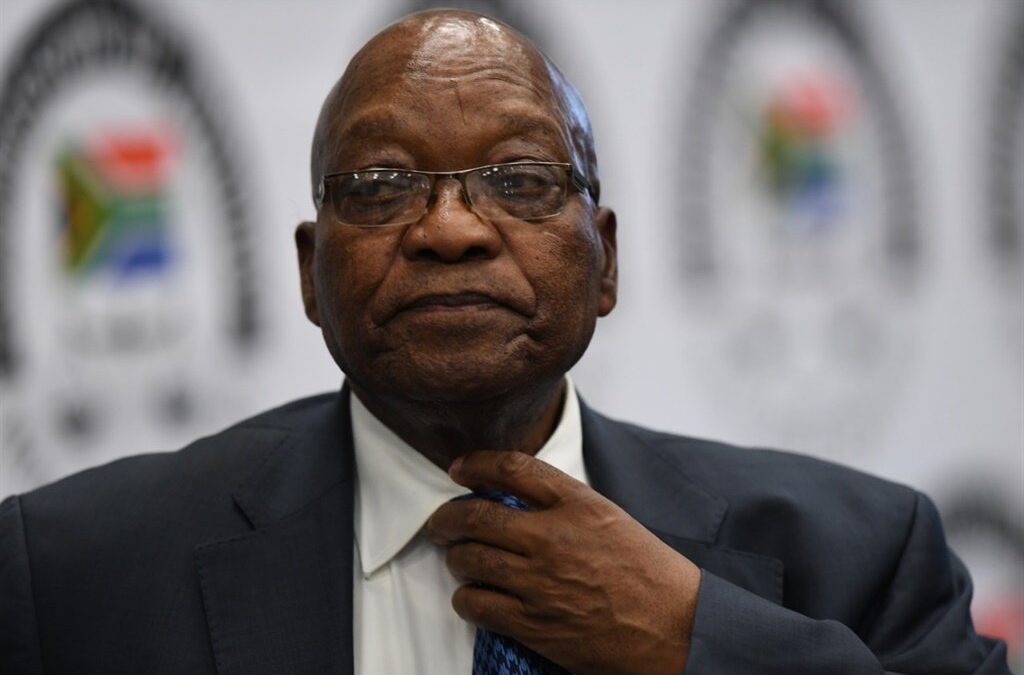
Jul 9, 2021 | News
The ruling by a South African High Court rejecting former President Zuma’s arguments that he should not be incarcerated for contempt of court is a victory for the rule of law, the International Commission of Jurists (ICJ) said today
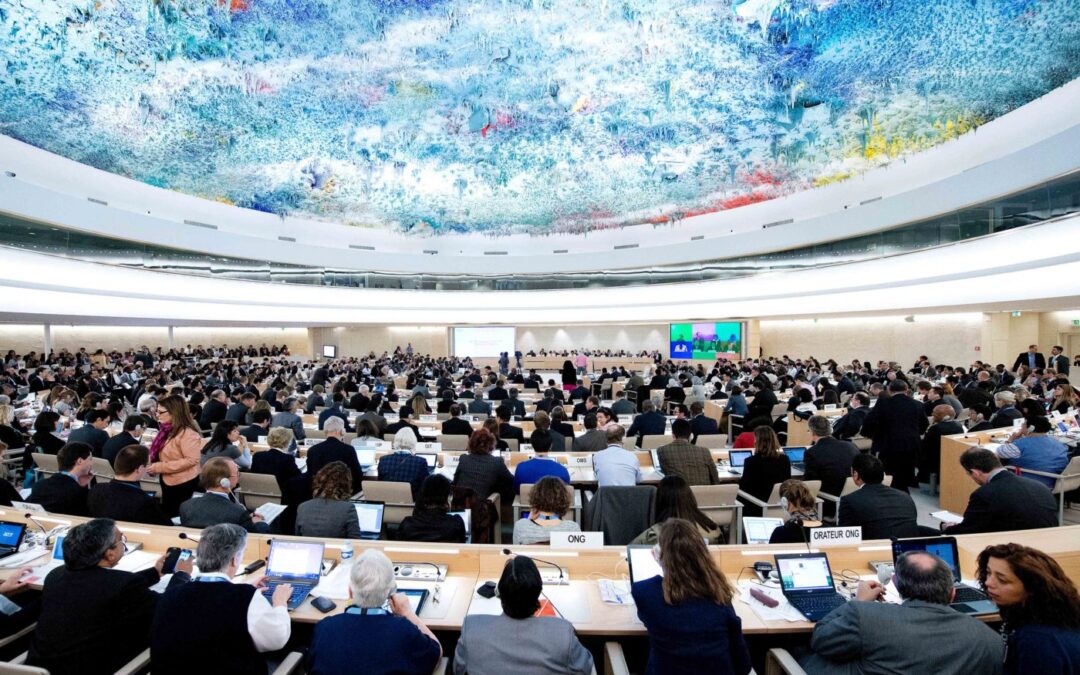
Jun 29, 2021 | Advocacy, Non-legal submissions
The ICJ today addressed the UN Human Rights Council in the Interactive Dialogue on the Report of the Special Rapporteur on violence against women, its causes and consequences.

Jun 25, 2021 | Advocacy, Open letters
The ICJ is concerned that the South African Health Products Regulatory Authority (SAHRPRA) are prioritizing young fit healthy persons to receive vaccinations. In the context of severe shortages of vaccines in South Africa and Southern Africa more generally, and in light of the stated aim of South Africa’s own vaccine roll-out plan to prioritize the most vulnerable in line with WHO advice, the vaccination of younger ‘elite athletes’ and young diplomats would appear unjustifiable on public health grounds. They are simply not priority groups for vaccination, especially where there is vaccine scarcity, inequality, and the promise by government of equality.
ICJ Africa Director, Kaajal Ramjathan-Keogh stated,
“To date South Africa has administered just over 2.23 million vaccines mostly to health care workers and persons over 60 years old. This represents just 3.76% of the population. South Africa has the highest number of confirmed cases in Africa with more than 1.86 million who have been infected and where 59 000 have lost their lives. According to the South African Medical Research Council the excess deaths, which represent a more accurate representation of Covid-19 related mortality, is at 173 000. In this context the slow pace of vaccination coupled with the unfair and unequitable prioritisation of certain groups is contributing to a devastating third wave.”
A decision taken by SAHPRA appears to contradict the eligibility criteria of the Sisonke vaccine trial (a process where a vaccine was made available to health care workers using a research programme prior to the requisite approvals and licencing processes) to include among others ‘elite athletes’, enabling them to enjoy special privileged access to some of the remaining clinical trial stock, while others at risk could have been study subjects instead.
No reasons or public health-based justifications have been made publicly available as to why athletes and other persons working in sport as well government officials were given priority access. Ramjathan-Keogh added,
“No reasons or public health-based justifications have been made publicly available as to why these athletes and as well as sports and government officials have been prioritised to receive these vaccines from the Sisonke trial. If they cannot be justified on public health grounds, we are concerned that they may be non-compliant with human rights imperatives, and we question the ethical considerations of the approach”.
According to the Africa Centre for Diseases Control and Prevention as of 24 June there are 5.2 million cases reported across Africa, with 139 000 total deaths in Africa. Most new cases are from these five countries – South Africa (35%) Ethiopia (5%), Egypt (5%), Morocco (10%) and Tunisia (7%). The highest number of new cases are emerging from Southern Africa and from these countries: South Africa, Zambia, Namibia, and Uganda representing 63% of new cases in Africa.
The ICJ calls on South Africa to follow the World Health Organization’s guidance which is to prioritise those who are more vulnerable in respect of equitable access and fair allocation of vaccines. Further, South Africa has an international legal obligation to protect the right to health as a State party to the International Covenant on Economic, Social and Cultural Rights.
The supervisory body for that treaty, the UN Committee on Economic, Social and Cultural Rights (CESCR) has affirmed that all healthcare goods, facilities, and services must be available, accessible, acceptable and of adequate quality. In addition, these goods, facilities, and services should be “accessible to all, especially the most vulnerable or marginalized sections of the population, in law and in fact, without discrimination on any of the prohibited grounds.” The right to health should be accessible without discrimination “even in times of severe resource constraints” such as those brought on by the COVID-19 pandemic.
Read the letter.
Further Reading:
ICJ, “The Unvaccinated Equality not Charity in Southern Africa” (May 2020): https://www.icj.org/wp-content/uploads/2021/05/Africa-The-Unvaccinated-Publications-Reports-2021-ENG.pdf
ICJ and Human Rights Watch, “More than words: it is time for urgent action on COVID-19 vaccines (UN Statement)” (21 June 2021): https://www.icj.org/more-than-words-it-is-time-for-urgent-action-on-covid-19-vaccines-un-statement/.
WHO, WHO SAGE values framework for the allocation and prioritization of COVID-19 vaccination (September 2020): https://apps.who.int/iris/bitstream/handle/10665/334299/WHO-2019-nCoV-SAGE_Framework-Allocation_and_prioritization-2020.1-eng.pdf
UN CESCR, Statement on universal and equitable access to vaccines for the coronavirus disease (COVID-19) (December 2020): https://tbinternet.ohchr.org/_layouts/15/treatybodyexternal/Download.aspx?symbolno=E%2fC.12%2f2020%2f2&Lang=en
UN CESCR, Statement on universal affordable vaccination against coronavirus disease (COVID-19), international cooperation and intellectual property (23 April 2020): https://tbinternet.ohchr.org/_layouts/15/treatybodyexternal/Download.aspx?symbolno=E%2fC.12%2f2021%2f1&Lang=en.
Contact
Kaajal Ramjathan-Keogh, ICJ Africa Director, Kaajal.Keogh(a)icj.org
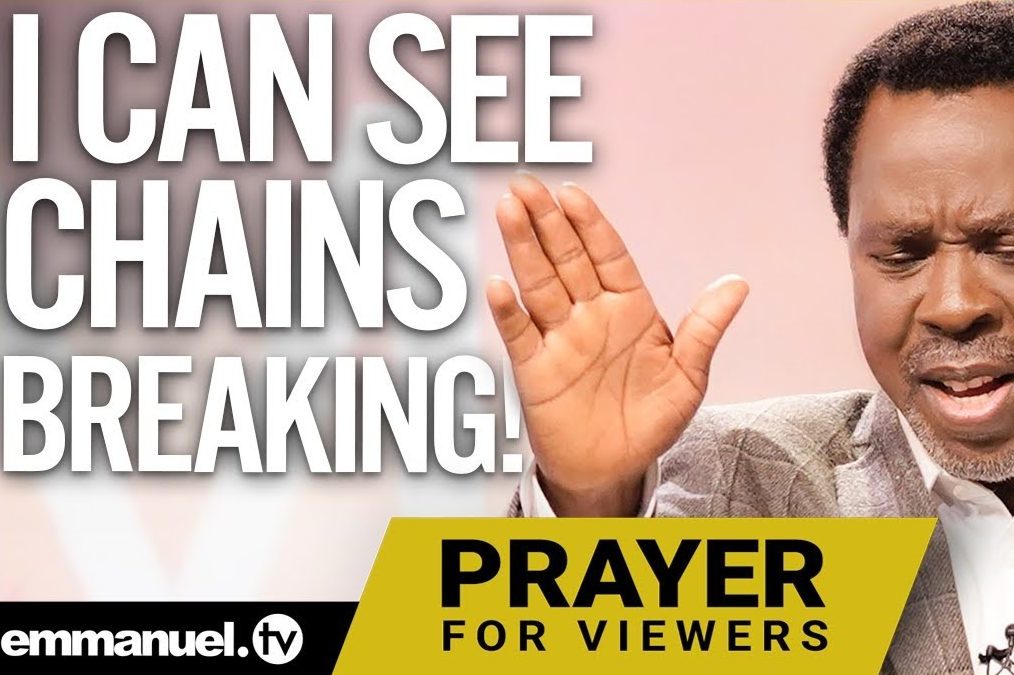
Jun 4, 2021 | Advocacy, Open letters
In May 2021 the ICJ wrote to The MultiChoice Group in South Africa urging it to suspend Emmanuel TV on any of the DSTV platforms for broadcasting televangelist Pastor TB Joshua’s multiple video clips ostensibly depicting violent ‘conversion therapy’ and hate speech against LGBT persons amounting to discrimination and human rights abuses. MultiChoice responded that it has “no editorial control or oversight” over Emmanuel TV as it is a “third-party channel” and therefore MultiChoice cannot investigate the incident further or take any remedial action.
MultiChoice claims on their website to “entertain, inform and empower African communities”. In addition to this, their entertainment platforms are a hub for approximately 14 million people across 50 countries. MultiChoice has a huge reach into African countries and in the homes of millions of people living in Africa. As a result, they have a responsibility to act in a way which does not promote harmful practises.
In response to ICJ’s letter, MultiChoice stated that it does not review the content broadcast on third-party channels such as Emmanuel TV prior to its broadcast. In place of a thorough investigation, the entertainment group said that it contacted Emmanuel TV and the latter stated that the ‘conversion therapy’ clips were not broadcast in April 2021. It is significant to note that Emmanuel TV did not deny that the clips were aired at all. Rather, MultiChoice alleged that it was simply “unable” to independently verify that the clip was broadcasted in April 2021 or at all.
Contrary to the impression given in its letter to the ICJ, MultiChoice is not limited to investigating offensive broadcasts that are aired within a specific time period. Additionally, while the ICJ notes MultiChoice’s assertion that Emmanuel TV is a third-party channel and consequently MultiChoice has no editorial control or oversight over the content of the channel, the ICJ believes that MultiChoice has a duty to not broadcast material that is discriminatory and in contravention of the South African Constitution.
MultiChoice has a responsibility to conduct a serious investigation into this matter and take the necessary remedial action. Consequently, we do not find that Emmanuel TV’s confirmation to MultiChoice, that the clip was not broadcast during April 2021 is sufficient; and MultiChoice’s inability to verify whether this program was broadcast at all, is unsatisfactory.
The UN Independent Expert on protection against violence and discrimination based on sexual orientation and gender identity, under the umbrella of the United Nations Human Rights Commission, has concluded in May 2020, that conversion therapy amounts to torture and ill-treatment and has called for a global ban on such practices.
In light of this, the ICJ is of the view that MultiChoice has a greater responsibility to the African audience to refrain from participating in the broadcast of such harmful practices, and must publicly take a stance against facilitating the airing of such broadcasts. The ICJ believes that MultiChoice’s responsibility as Africa’s “leading entertainment company” is not to pay “lip service” to the values of the South African Constitution, but rather to hold itself to higher thresholds of accountability.
ICJ has consequently urged MultiChoice to:
- Independently investigate this and other discriminatory and potentially unlawful broadcasts by Emmanuel TV and take appropriate remedial measures.
- Undertake to exclude Emmanuel TV as part of MultiChoice’s package to the public, or alternatively, to heavily condition its contract with Emmanuel TV to disallow the broadcast of offensive materials; should the investigation lead to the conclusion that the clip was broadcasted by them.
- Ensure that such offensive materials are not broadcast on any MultiChoice channels, irrespective of their status as third-party channels.
- Offer an apology from Multichoice Group to the LGBT persons, unless MultiChoice is able to demonstrate independently that the clip was not broadcast at all on their platform, neither by Emmanuel TV nor by any other third-party channel.
- Undertake an updating of the MultiChoice Group’s internal policies to bring them in line with human rights standards, the South African Constitution, and local laws on non-discrimination. This includes contractual arrangements with third party channels like Emmanuel TV which may broadcast discriminatory content.
Contact
Kaajal Ramjathan-Keogh, ICJ Africa Director, Kaajal.Keogh(a)icj.org
Tanveer Jeewa, Legal and Communications Officer, Tanveer.Jeewa(a)icj.org
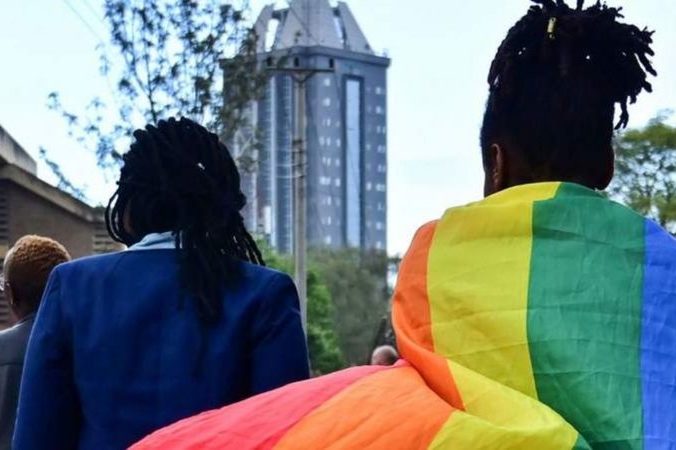
Apr 26, 2021 | News
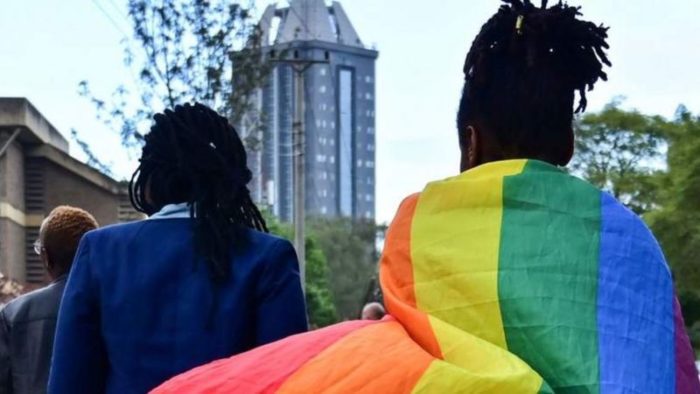
Homophobia is against African notions of ubuntu.
Over the past month, the killings of four gay men have made headlines in South Africa. Lonwabo Jack, a 22-year-old gay man, was killed on his birthday, 18 April. Earlier in April, two more gay men, were killed – Nathaniel Mbele in Vanderbijlpark and Sphamandla Khoza in Durban.
Lonwabo Jack’s killing occurred just two days after advocates for the human rights of lesbian, gay, bisexual, transgender and intersex people (LGBTI) led protests in front of Parliament in Cape Town demanding that the South African government address the countrywide homophobic violence that continues unabated.
The group Justice for Lulu, founded after Andile “Lulu” Ntuthela, a 40-year-old gay man, was killed in the Eastern Cape on 10 April. The group handed a memorandum to Parliament calling, among other things, for an urgent debate on hate crimes. The Gay and Lesbian Alliance of South Africa (GLASA), in turn, called for the government to speed up the adoption and enactment of the Prevention and Combating Hate Crimes and Hate Speech Bill B9 of 2018.
These hate crimes and attacks on the LGBTI community have been ongoing for many years. Homophobia is endemic in South Africa, despite the comprehensive and progressive legal framework, including legal protection for the human rights of LGBTI persons.
As attested to by the ICJ’s recent report, “Invisible, Isolated, and Ignored: A report on Human Rights abuses on Sexual Orientation and Gender Identity/Expression in Colombia, South Africa and Malaysia”, and illustrated by these ongoing attacks, these legal protections do not translate into real protection of human rights in practice.
“South Africa is a heteronormative society where patriarchy is deeply rooted; this contributes to violence and discrimination against LGBTI persons. The view that homosexuality is un-African is held by many. Political and cultural leaders have in the past publicly espoused anti-gay sentiments and this encourages discriminatory attitudes and violence against people based on their real or imputed sexual orientation, gender identity or expression”, said Kaajal Ramjathan-Keogh, Director of ICJ Africa.
Section 9(3) of the South African Constitution provides that the State may not unfairly discriminate directly or indirectly against anyone on the ground of sexual orientation, and the African Charter on Human and Peoples’ Rights (African Charter) grants protection against prohibited discrimination, and entitles every person to equal protection of the law.
Additionally, the African Charter entitles every individual to respect of their life and the integrity of their person, and prohibits torture, cruel, inhumane or degrading punishment and treatment.
In its Resolution on ‘Protection against Violence and Other Human Rights Violations against Persons on the basis of their real or imputed Sexual Orientation or Gender Identity’, the African Commission strongly urged “States to end all acts of violence and abuse, whether committed by State or non-state actors, including by enacting and effectively applying appropriate laws prohibiting and punishing all forms of violence including those targeting persons on the basis of their imputed or real sexual orientation or gender identities, ensuring proper investigation and diligent prosecution of perpetrators, and establishing judicial procedures responsive to the needs of victims.”
Notwithstanding South Africa’s legal obligations, LGBTI persons face significant barriers in accessing justice and effective remedies for human rights violations; particular challenges affect the criminal justice system, resulting in many cases concerning the protection of human rights of LGBTI persons not reaching the courts.
These barriers to access to justice and effective remedies for human rights violations include experiences of discrimination within the criminal justice system, as well as societal homophobia and transphobia. This is in contravention of South Africa’s duties under international, regional and national law to afford every person equal protection of the law.
The Prevention and Combatting of Hate Crimes and Hate Speech Bill needs to be adopted as a matter of urgency. It is important as measure of deterrence and to ensure that perpetrators of hate crimes be brought to justice.
The ICJ condemns the killings of members of the LGBTI community and calls on the South African government to acknowledge the discrimination, hatred and violence that LGBTI persons face every day in South Africa and to act decisively to address these harms.
Progressive legislation is not enough, the criminal justice system needs to be sensitized and educated to eliminate experiences of societal homophobia and transphobia. We echo the demands in this joint statement by multiple human rights organizations in South Africa.
Whatever one’s real or imputed sexual orientation, gender identity or expression, nobody should have to live in fear, everyone should be able to have trust in the police and judicial system. The homophobic acts and sentiments in South Africa are against African notions of ubuntu. Society cannot be free, until all its people are free, and treated with dignity.
Contact:
Nokukhanya (Khanyo) Farisè, Legal Adviser (Africa Regional Programme), e: nokukhanya.farise(a)icj.org
Tanveer Rashid Jeewa, Communications and Legal Officer, e: tanveer.jeewa(a)icj.org










